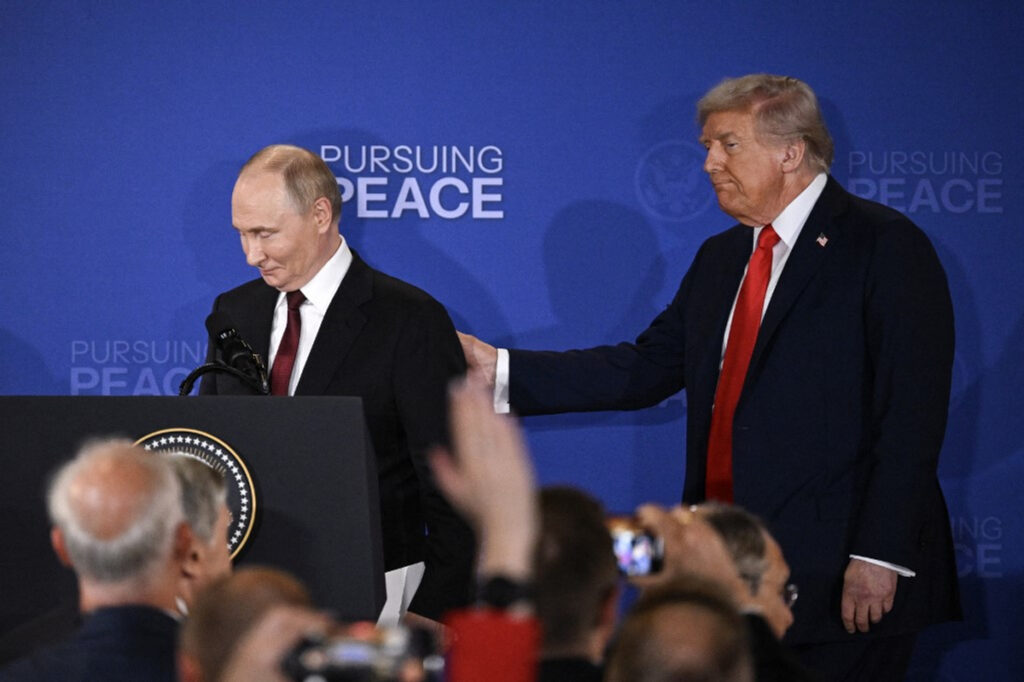
In a surprising move, the United States has imposed new sanctions on Russia’s largest oil companies, Rosneft and Lukoil, along with dozens of their subsidiaries. Announced in October 2025, these measures mark the first economic sanctions against Moscow by the Trump administration during his second term. The sanctions aim to increase economic pressure on Russia, citing President Vladimir Putin’s lack of commitment to a peace process in Ukraine. The European Union and the United Kingdom quickly followed suit, targeting the Russian energy sector with their own sanctions.
The U.S. Treasury Department’s Office of Foreign Assets Control (OFAC) unveiled the sanctions, highlighting their significance as the first major economic measures from the Trump administration targeting Moscow. President Donald Trump, expressing frustration with diplomatic efforts, stated he had “waited long enough” and felt compelled to act. “Whenever I talk to Vladimir, we have fruitful discussions that end there,” Trump remarked, indicating a shift from his previous stance.
Diplomatic Fallout and Legislative Moves
Following the sanctions announcement, Trump canceled a scheduled meeting with Putin in Budapest, Hungary, citing a lack of progress in diplomatic talks. Instead, Trump plans to meet with Chinese leader Xi Jinping in South Korea to discuss potential mediation in the Russia-Ukraine conflict.
Meanwhile, the U.S. Senate Foreign Relations Committee approved three bipartisan bills that could further impact Russia. The first bill may designate Russia as a state sponsor of terrorism if it fails to return abducted Ukrainian children. Another bill aims to expedite the transfer of frozen Russian assets to Ukraine, while the “STOP China and Russia Act of 2025” targets Chinese entities supporting Russia’s military efforts.
European Sanctions and Global Implications
The European Union adopted its 19th package of sanctions against Russia on October 23, 2025. These sanctions target key sectors of the Russian economy, including energy, finance, and the military-industrial complex. The measures include a phased ban on Russian liquefied natural gas (LNG) imports and restrictions on Russia’s “shadow fleet” of vessels used to circumvent sanctions.
The EU’s sanctions align with those of the U.S. and the UK, creating a coordinated effort to pressure Russia. This synchronization has been described by experts as a “perfect storm” for the Russian economy, potentially causing significant disruptions to Russian oil exports.
Expert Opinions and Political Calculations
The decision to impose sanctions has sparked debate among experts. Ukraine’s former top diplomat Volodymyr Ohryzko believes Trump’s actions are a response to personal humiliation by Putin. Political commentator Oleh Sharp suggests a bipartisan delegation’s influence, including key figures from the U.S. oil and military sectors, played a role in Trump’s decision.
Political expert Yuri Bohdanov notes internal pressure within the Republican Party, with figures like Marco Rubio convincing Trump that his relationship with Putin was damaging his approval ratings. Political scientist Oleh Sahakyan points to broader geopolitical factors, including shifts in U.S. public sentiment and foreign policy dynamics, as influencing Trump’s decision.
Is This a New Beginning?
Opinions vary on whether the sanctions represent a systemic shift in U.S. policy or a one-time reaction. Oleh Sahakyan views the sanctions as a prologue to a new stage of pressure on Russia, citing the immediate legislative response from Congress. Conversely, Yuri Bohdanov sees the sanctions as part of a “hybrid” strategy, with Trump oscillating between negotiation and coercion.
Oleh Sharp warns against overestimating Trump’s consistency, while Volodymyr Ohryzko emphasizes the importance of continued pressure, including potential agreements with China to exert joint pressure on Putin.
The Kremlin’s Response
Moscow’s reaction to the sanctions has been a mix of public bravado and threats, alongside attempts to simulate readiness for dialogue. Dmitry Medvedev, deputy chairman of Russia’s Security Council, has issued statements reflecting Putin’s stance, while Russia’s nuclear exercises and military posturing are seen as attempts to intimidate.
Experts predict that Russia will continue to use nuclear threats and propaganda to counter Western pressure, while the economic situation in Russia deteriorates. The coordinated sanctions from the U.S., EU, and UK are already causing concern among Russia’s key partners, such as China.
In conclusion, the Trump administration’s sanctions against Rosneft and Lukoil are a significant development, signaling a potential shift in U.S. policy towards Russia. Whether this marks the beginning of a sustained pressure campaign or a temporary reaction remains to be seen. However, the synchronization with European and British actions suggests a coordinated Western strategy that could have lasting effects on Russia’s economy and geopolitical standing.






